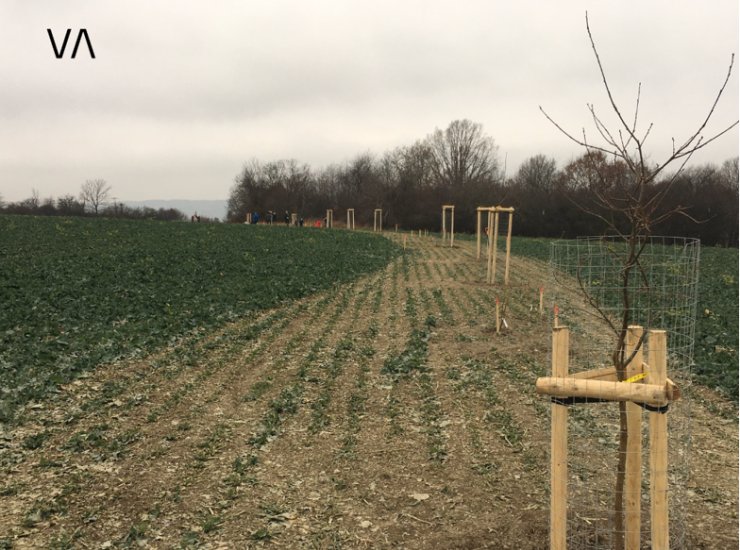Blog
Entrusting a child into the care of another person is a fundamental right for parents. It reflects the everyday reality, encompassed in a single paragraph with a myriad of questions.

The everyday care for a child, encompassing their health, development, protection, upbringing, education, and other needs, is an demanding, if not superhuman, task for one or even both parents. It is precisely the parents who, due to their parental responsibility, have both the primary right and obligation to personally ensure all aspects of caring for their children. Parental responsibility arises at the moment of a child's birth and ceases when the child attains full legal capacity, typically at the age of 18. On the other hand, it is evident that parents, during the 18 years from the child's birth, dedicate their time to matters beyond just caring for the child. How is this possible?
In addition to exceptional institutions, such as court-imposed restrictions on parental responsibility or the placement of a child in the care of someone by a court decision, there exists a simple right for parents to temporarily entrust their child to the care of another person. The Civil Code devotes only a brief paragraph to this form of entrustment. Nevertheless, this method of entrustment is far more common and manifests in various forms in everyday life. Parents entrust their children to relatives, neighbors, schools, instructors of extracurricular activities, camp leaders, or healthcare facilities.
Each time parents entrust their child to the care of another person, this entrustment has a specific scope. It is defined by a combination of criteria such as material, personal, temporal, and spatial. In connection with a particular scope and individual criteria, additional conditions may arise for specific entrustments. These additional conditions could include, for example, payment for babysitting services or providing information about the child's health insurance.
For instance, when entrusting a child to the care of a school, parents entrust the child for the purpose of supervision and education (material criterion), provided by educational staff and other school employees (personal criterion), according to the class schedule (temporal criterion), and typically within the school premises (spatial criterion). In the case of schools, the situation is specific because the scope and rules of child care/supervision are broadly defined by legal regulations. In contrast, situations where a grandparent looks after a child result either from an agreement between the parents and the grandparent or from established customs.
Let's consider a situation, for example, where the person temporarily entrusted with the child takes them to an open house day at the local zoo, where the entry is free. In the case of public schools, it is a requirement that the school informs parents at least one day in advance about events taking place outside the school premises. Therefore, a school can take children to the zoo without parental consent, but they must inform parents at least a day in advance. However, if it were a private kindergarten not registered in the school registry, this rule would not apply. The rules for excursions are usually outlined in the contract between the kindergarten and the parents. And if the child is taken to the zoo by the grandmother, she would do so either by individually agreeing with the parents or because similar outings are customary within the family.
Do you take care of children, provide them with education, organize leisure activities or trips, camps, and more? Then it's good to know which category you fall into to fulfill legal obligations and avoid potential liabilities. We have extensive experience with legal matters related to child care and offer legal advice to schools, educational institutions, and businesses in the tourism industry providing services to children.
Therefore, do not hesitate to contact us if necessary.
More articles:

Starting July, it is permissible to plant tree avenues half a meter from adjacent fie...
A new legal regulation will allow planting trees along roads that are at a distance of 0.5 meters from the boundaries of adjacent plots. This amendment to the Road Act will have a positive impact on efforts to plant trees, tree avenues... → continue
Stewarts
'No one has done as much for me as you,' Eva said.
Stewarts
"A visit to her daughter in London turned Eva's life upside down when she says she stepped into a crossing on a green light but was hit by a car. Despite her remarkable bravery, she faced a long treatment due to fractures in her pelvis, and the associated limitations and pain are likely to persist for the rest of her life. Regular headaches and impaired concentration compound her challenges.
Eva contacted us through an organization temporarily helping her manage her difficult living situation. At that time, she was destitute, relying only on subsistence payments. We were able to assist her because we specialize in personal injury and have contacts with proven colleagues abroad.
We worked with Stewarts, a UK law firm, on this case. Attorneys Klára Dvořáková and Rebecca Huxford helped Eva with the documentation in her case, explaining her options and the differences between the Czech and British systems of healthcare and social benefits reimbursement. Within a few months, thanks to the professional cooperation between the two offices, an offer of compensation from the insurance company of approximately CZK seven million was achieved. The client accepted this settlement because she did not want to deal with courts in the United Kingdom.
Subsequently, we assisted the client with related tax issues and contacted Auditone, a tax consultancy firm, which arranged for the filing of a tax return. Compensation for lost income is taxable, unlike most personal injury compensation.
'No one has done as much for me as you,' Eva said.
The fact that we were able to help Eva gives our work meaning and brings us great joy. We are very happy that, thanks to our many years of active involvement in the international professional organization PEOPIL, we can cooperate on such cases."
Livingstone, Tour Operator
Thank you again for your valuable advice. I breathe better when I know who to turn to.
Livingstone, Tour Operator
"Thank you again for your valuable advice. I breathe better when I know who to turn to."
Anders Thorsen Advokatanpartsselskab
It has been an absolute pleasure to work with you.
Anders Thorsen Advokatanpartsselskab
"It has been an absolute pleasure to work with you and your colleagues. Your advice and way of handling the matter and our communication has been of the highest quality and we are very happy with the outcome.
If any of my clients need assistance in matters in the Czech Republic in the future, I know who to recommend."




